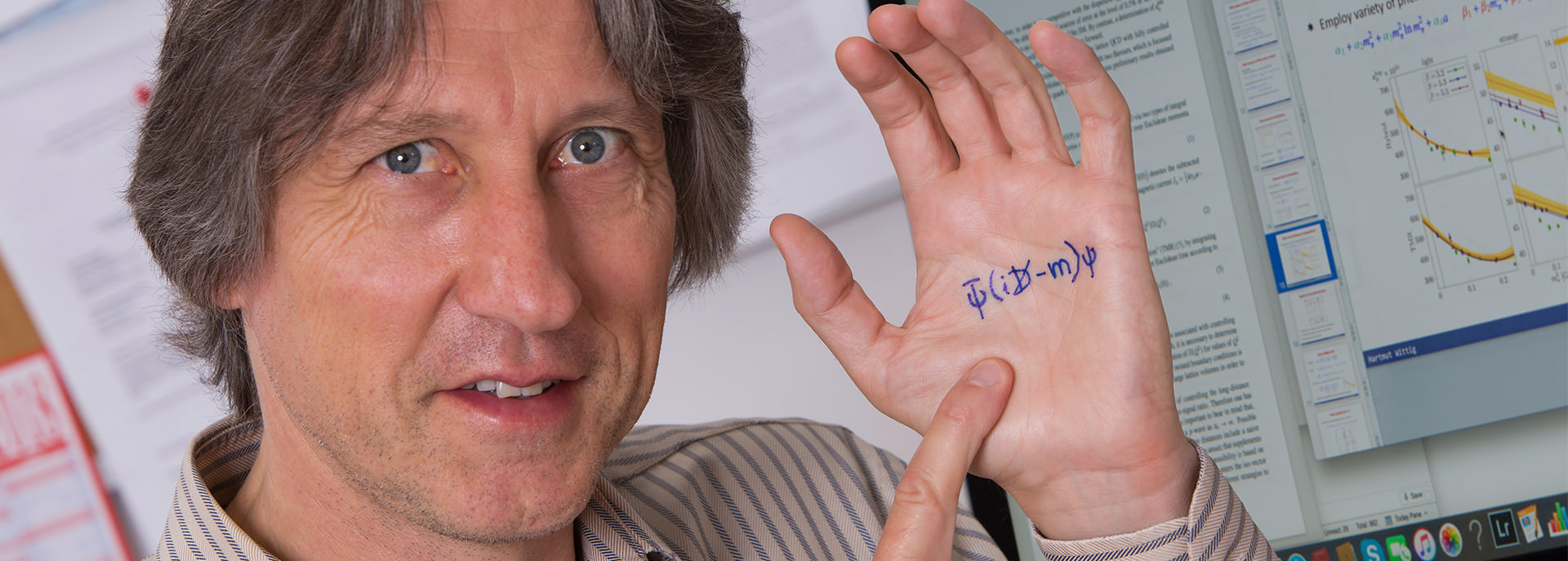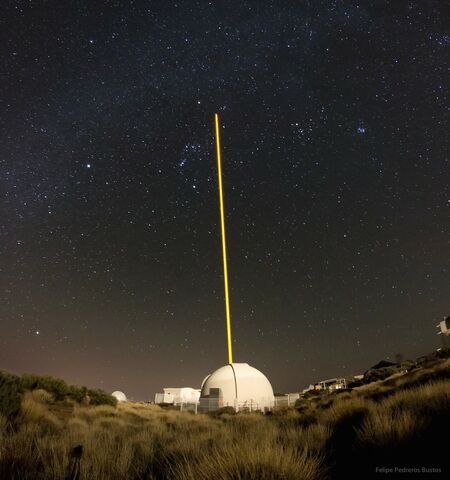Dr. Felipe Pedreros Bustos now made his way as a Marie Sklodowska-Curie Postdoctoral Fellow to the Laboratoire d’Astrophysique de Marseille, France. This was made possible by his extraordinary and fruitful work at the Helmholtz Institute Mainz.
For the PhD thesis, he completed in December 2019 under the guidance of Prof. Dmitry Budker in Mainz, he is now awarded the Thesis Prize of the European Physical Society - Quantum Electronics and Optics Division. His research is in optimization of the laser-generated stars and using them to determine the Earth's magnetic field in the sodium layer of the atmosphere.
In the upcoming years, the astrophysical community will benefit from the arrival of a new generation of giant ground-based telescopes with mirrors of up to 39 meters in diameter. In order to reach their maximum performance, telescopes will be equipped with Adaptive Optics (AO) systems which compensate the effects of atmospheric turbulence improving the optical resolution of the instruments. Adaptive Optics has been essential, for example, to accurately determine the position of a group of stars in the center of our galaxy whose motion is driven by the presence of a black hole in their vicinity. One of the key components of AO is the Laser Guide Star (LGS). An LGS is an artificial source of light generated in a layer of atomic sodium between 85 km and 100 km altitude in the upper mesosphere, using a laser beam launched from the telescope.
The thesis introduces the physics of LGS and provides a model description of the interaction between laser radiation and sodium atoms in the mesosphere.
Dr. Pedreros Bustos’ research has already been described in a JGU press release on the occasion of the bestowal of his Marie Sklodowska-Curie Postdoctoral Fellowship.
EPS thesis prizes are awarded on a biennial basis for the best Ph.D theses in the area of quantum electronics and optics.



